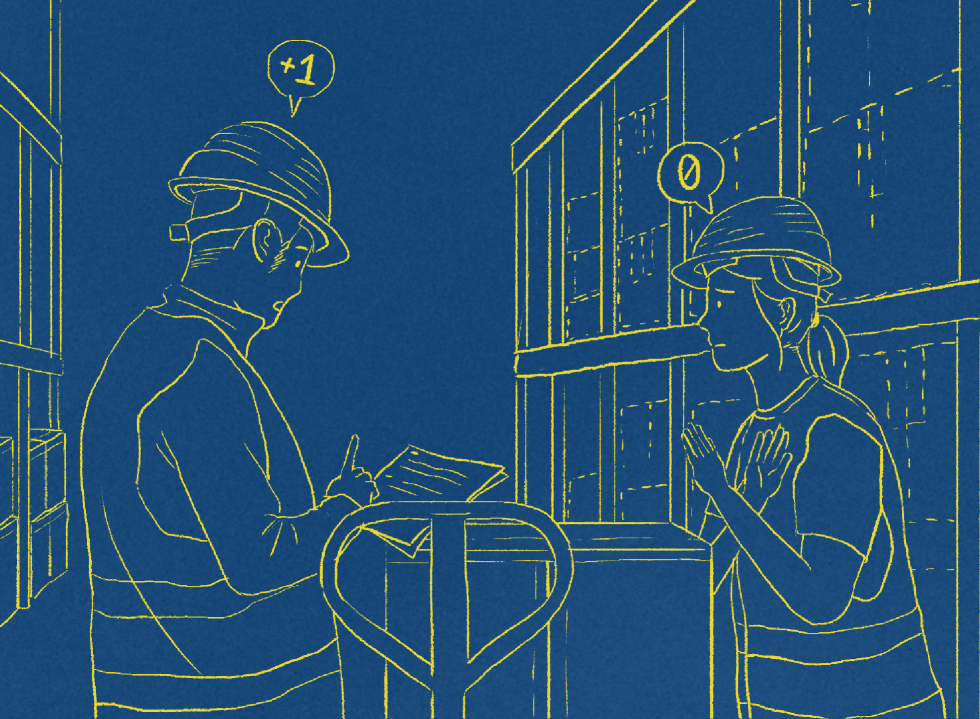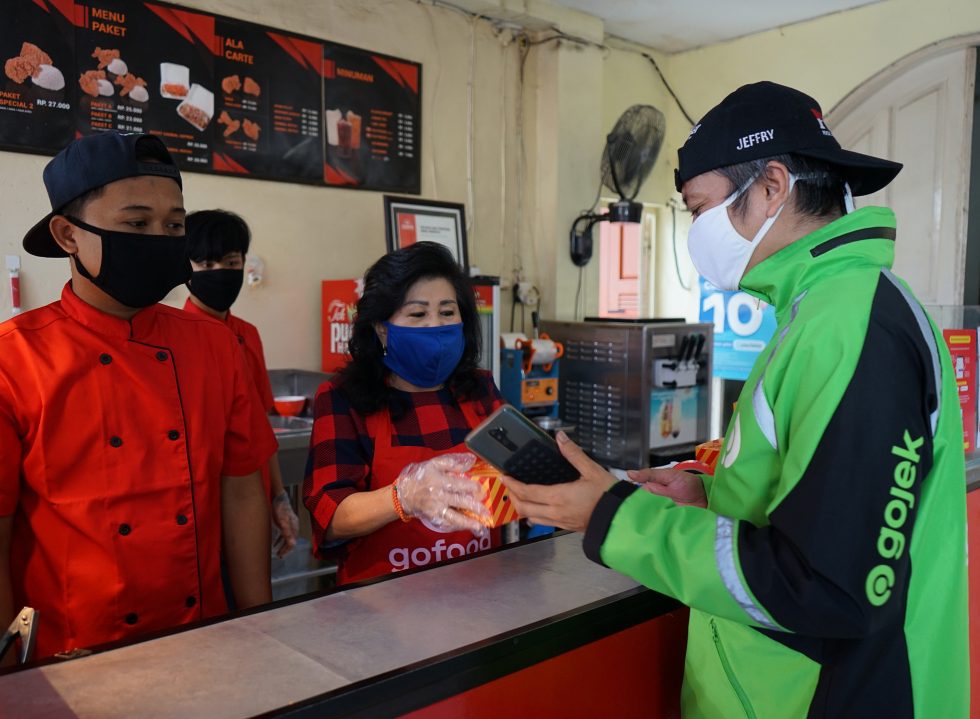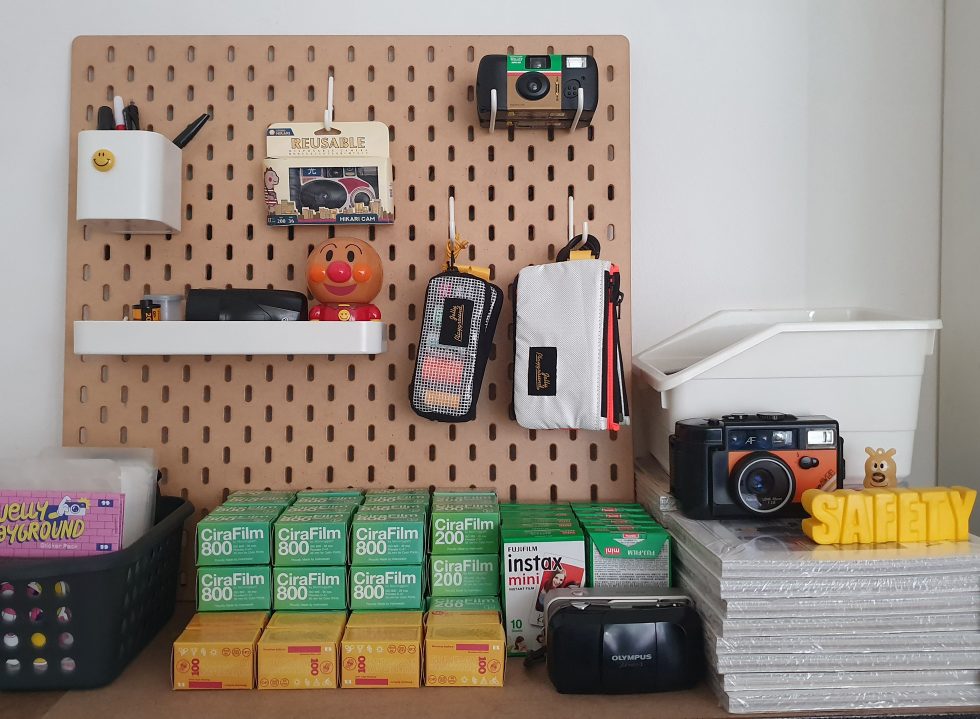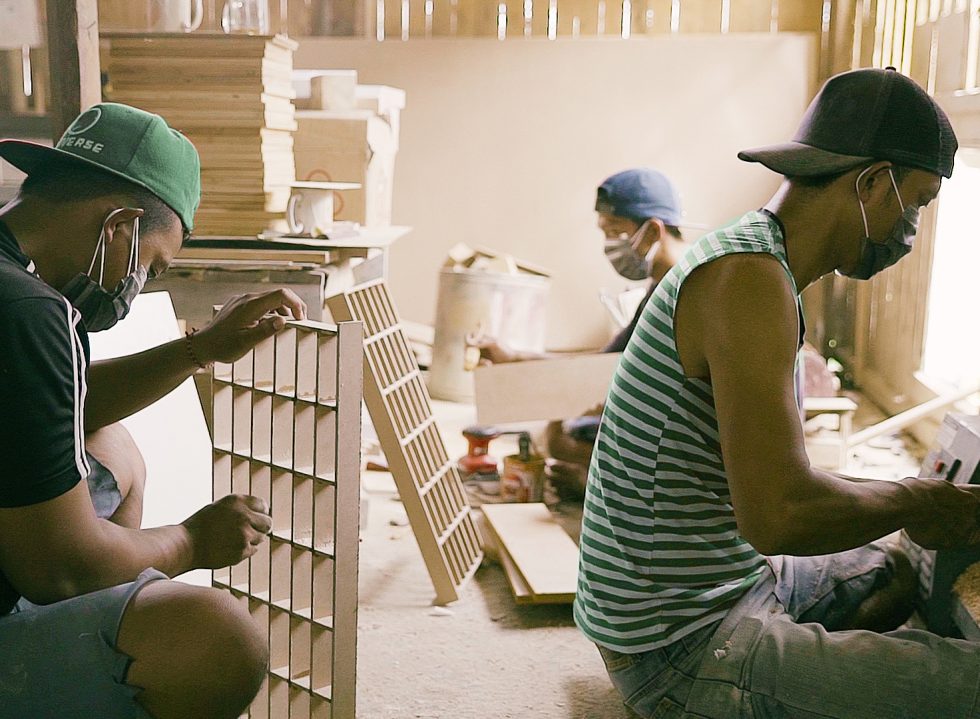In our effort to make social distancing less monotonous, REMOTELY is a special series from Manual Jakarta where we roll out comforting and practical articles to keep you company and motivated during this period of self-isolation.
–
What does it mean to flourish during a difficult time? When businesses, like restaurants, bars and movie theatres grapple with the direct impacts of COVID-19, e-commerce finds a rather unique momentum.
The work-from-home measure, which soon progressed into the large-scale social restriction (PSBB), has led to a spurt of engagement with people resorting to e-commerce platforms.
Tech giant, Bukalapak, saw a spike in transactions with growth in new users. Conversely, Blibli logged increased demands for cooking appliances, video games and exercising gears, further portraying a shift in what, where and how people shop during the pandemic.
In this feature, we highlight the highs and lows of online businesses operating under the pandemic and how they explore ways to adjust throughout.
From the market leaders
For Tokopedia, one of Indonesia’s e-commerce unicorns, impacts of the pandemic were most visible in people’s shopping behaviours.
Based on the platform’s internal data, there’s been a significant increase in the health category with users purchasing vitamins, first aid kits and mouth masks. The PSBB conditions have also shifted people’s source of entertainment at home, as seen in the spike of food and beverage, household items and electronics; popular purchases ranged from processed meats and packaged coffee to plant pots, along with earphones, speakers and light bulbs.
Similarly, with GoFood, the food-hailing division of another tech giant, GoJek, changes have been seen in people’s food order consumption.
With many staying at home, the average order value went up as people ordered more quantities for their families. The platform also noted more customers cooking at home and placing orders for snacks and speciality food instead.
“GoFood recorded a 10 per cent growth in an average number of transactions and revenue at the end of May, compared to the last week of April,” said Rosel Lavina, VP corporate affairs food system at GoJek.
“Our culinary merchant partners, including Micro, Small and Medium Enterprises (MSME), are shifting from offline to online for their transactions. This has made our GoFood business stable.”
Supporting MSMEs while restoring the country’s economy has been the mission that both tech platforms share. This was especially magnified during the pandemic.
As a response, both companies joined hands with the government by participating in the #BanggaBuatanIndonesia national campaign to further elevate local brands and connect MSMEs to digital platforms.
Other campaigns have also taken place to front these means. Together with Tokopedia, more than 1,000 local coffee businesses, such as Dua Coffee and Kopi Klinik, joined the #SatuDalamKopi initiative in their support of small and medium enterprises.
GoJek has also been working closely with the Ministry of Agriculture to board merchants that sell staple food on the food delivery app, bringing them online for the first time while also offering consumers greater supplies during this period.
“Offline businesses will have to adjust and consider integrating with online platforms to future-proof their businesses. We are helping businesses do this,” said Rosel.
With these and other initiatives at hand, people can also see “more and more people actually caring for each other and have shown a truly Indonesian spirit of gotong-royong (working together to help).”
Demand-and-supply: wins and woes
The same boom can also be said for smaller, independent businesses. For Callie Cotton, a local fashion label for womenswear, sales have steadily increased since March, from web traffic to a rising following on social media.
“We’re overwhelmed – in a good way! We have received an unexpectedly good number of orders, starting with the launch of our Ramadan collaboration with IKYK (I Know You Know), followed by our new Spring Summer’ 20 collections,” said Agnes Angelin, marketing rep of the label.
While Callie Cotton had to close its physical stores at Grand Indonesia and Pondok Indah Mall 2, immediate actions taken were moving operations and some inventories online. In addition, the label has been maximising weekly content on social media through Instagram live and offering discount codes for their products.
“Today, consumers have shifted to buying clothes suitable for home wear, while Callie’s products are actually in the opposite category,” said Agnes. “Still, we wanted to meet current market needs, so we decided to launch a loungewear collection for our upcoming Spring Summer’20.”
Over at Skin Game, a local skincare brand, demands also kept surging along with heightened social media engagement. In turn, in-stock products continue to be sold out and customers have to order in advance.
“Most of our packaging and ingredients are imported, hence logistics got delayed. With PSBB in place, our manufacturers’ productivity rate also decreased by 40 per cent,” said Michella Ham, founder of Skin Game.
“Other than struggling with inadequate supplies, we are also facing problems with tight schedules as every planned event is postponed and some events crashing.”
To compensate, the label ‘bulked’ on their orders for product ingredients along with packaging needs in order to have enough stock until the situation is back on track, all the while teaming up with local brands to create online content.
The same woes and wins resonated with Jellyplayground, a local web-store specialising in film cameras and photography-related gear, as well as merchandise ranging from tote bags to stickers. With most supplies being imported, distribution and logistics slowdown became the business’ main hindrance.
“Sales plummeted within the first few weeks,” said Renaldy Fernando, founder of Jellyplayground. “Distribution also hampered. In consequence, we had to increase product prices as stocks are limited. Though logistics slowed down in several regions, it has improved gradually.”
As a response, Renaldy explored strategies to keep engagement intact. From boosting sales through promos for every purchase and activating online contents to offering bundles and hampers during last month’s Ramadan.
“The pandemic is like a big wave for home-based businesses like us. Whether we like it or not, we have to move fast to adapt. Taking immediate actions are vital so our business won’t capsize,” said Renaldy.
By the same token, these wins and setbacks were also faced by lifestyle retailers like Masari and Bobobobo. For Masari – or Masarishop – an online luxury multi-brand retailer, traffic rose up to 200 per cent. This rise quickly turned into a domino effect in other areas.
Similar to Callie Cotton, Masarishop experienced a rise in demand for lounge/home wear among other outfits and products.
“There’s been an increase from average order and item per basket, to a wider range of audience demographics and a spike in demand of styles that were not game players in the past, such as activewear, loungewear, home decorations and kids,” explained Stephanie Arifin, e-commerce manager of Masarishop.
The downside, however, is as expected: delay in logistics and shipment of new collections to an imbalance in the inventory. “Temporarily suspending campaign shoots also means that we have to be smarter and more creative in promoting goods while still not running out of visual content.”
Having dead inventory lying around in the warehouse was also an initial concern for Masarishop, for they would have to execute heavy promotions and discounts to clear stocks. “We’re afraid that this approach would hurt our brand’s longevity in the long run, so we didn’t do very much in terms of discounting. Instead, we pushed for the curation of items and exclusive collections,” said Stephanie.
Among them is an exclusive pyjama collection by Melbourne-based brand, SUKU Home – which was met with an exciting response with some items sold out on the first day of launch – as well as teaming up with local fashion designers Major Minor and Sean Sheila for exclusive styles.
“We could have been just another online shop but we never stopped fighting for these three things: a firm brand image, brand positioning as an official high-end retailer, and an expert curation on fashion and lifestyle,” said Stephanie. “Of course, we are not perfect. But we’ve seen how these three things paid off in the last few months and we’re on track to become a very versatile shop that can still deliver safely to customers.”
Bobobobo, who also curates international and local lifestyle brands on their online channel, naturally saw a decline in offline sales as many malls were closed. Online sales also faced the brunt, although they slowly picked up in May as Ramadan holidays neared.
“We’ve seen an increased demand for local products and basic comfortable wear. We’re also quite surprised that despite lockdown, people are still buying sneakers,” said Rosiana Halim, CEO of Bobobobo.
This year, the company’s initial plan was to expand its offline presence, with four physical stores (Pondok Indah Mall, Mall Kepala Gading 3, Galeries Lafayette at Pacific Place and Seibu at Grand Indonesia) already under their belt. Instead, the company rolled out innovative solutions to increase productivity during the pandemic.
“The process of new arrivals activation, which usually takes one week, can now be done in less than a day. Instead of assigning the task to one dedicated person, we simplified the process and trained everyone in the company on the know-how. And every time we need to activate new products, we just recruit whoever that is available and distribute the task according to their capacity,” said Rosiana.
“We make our team really agile so everyone is ready to support each other in different types of tasks for faster outputs.”
Working around the pandemic
With many working conditions relocated remotely and virtually, steps have been made by companies to integrate safety measures for employees while still resuming business as usual.
Big companies like Tokopedia have set strict rules that require all employees to work from home. To ensure the effectiveness of more than 4,900 Nakama (Japanese for ‘friend’, a term referred for their employees), the company requires every staff “to carry out virtual communication between teams on a regular basis according to a specified schedule,” said Ekhel Chandra Wijaya, external communications senior lead at Tokopedia.
The company also runs a Work-Fun-Home programme, a series of enjoyable activities for their employees, from Nakama Got Talent and movie nights to virtual town hall meetings.
At Callie Cotton, the work-from-home and shift work system were both implemented. People from design, marketing and finance are usually the ones who make office visits, while staff at merchandising and warehouse works remotely.
In contrast, the work-from-home system has been rather stress-free for Masarishop. “We’re already used to the 24/7 aspect of our online platform,” said Stephanie. “Setting up a streamlined WFH system is quite painless for us and we can still work effectively and efficiently.”
At e-hailing corporations like GoJek, however, the new working arrangement gets slightly tricky for one of the company’s most important assets: pick-up drivers. With them being vulnerable to outside environments, further safety measures were bound to take ground.
As a preventive protocol, GoJek has established 130 safe posts across 16 cities. At every centre, drivers will be given access to three kinds of services: body temperature check, health kit distribution and vehicle disinfection.
To further safety and hygiene protocols, the platform has also provided 50,000 MSME partner outlets with masks, food sanitation and safety packagings, such as antiseptic soap, shopping bags and safety seals (sealing tape and cable ties). “Ensuring the safety and hygiene for our ecosystem which include merchants, drivers, and customers, are currently our top priorities while maintaining a sustainable business,” closed Rosel.
An e-commerce future?
Even after pandemic struck, the trajectory of e-commerce growth in Indonesia remained positive, according to a recent survey by consulting company, Redseer. Over 50 per cent consumers also had more plans to shop online as a result of the pandemic, further fueling the e-commerce boom across Asia.
There may still be no end in sight for COVID-19, but these online shopping habits might stick, potentially reshaping the future of e-commerce: mini-warehouses might pop up everywhere, shortages of products might still continue and fast deliveries would cost more.
While every business operates differently, some lessons to draw from the toll of the pandemic is that “online and offline need to go hand-in-hand,” said Rosel of GoJek. For platforms like such, “creating a greater resilience in traditional businesses while providing them with opportunities to grow online” is one of the critical points taken from this experience.
But for other independent brands like Jellyplayground, Renaldy foresees the now more-crowded playing field in e-commerce leading to even tighter competition, with new businesses emerging during the quarantine. “That’s why as a brand, we must always be adaptive and try to provide values beyond our own means,” closed Renaldy. “This is so a brand’s resonance could still be reached to every consumer.”










